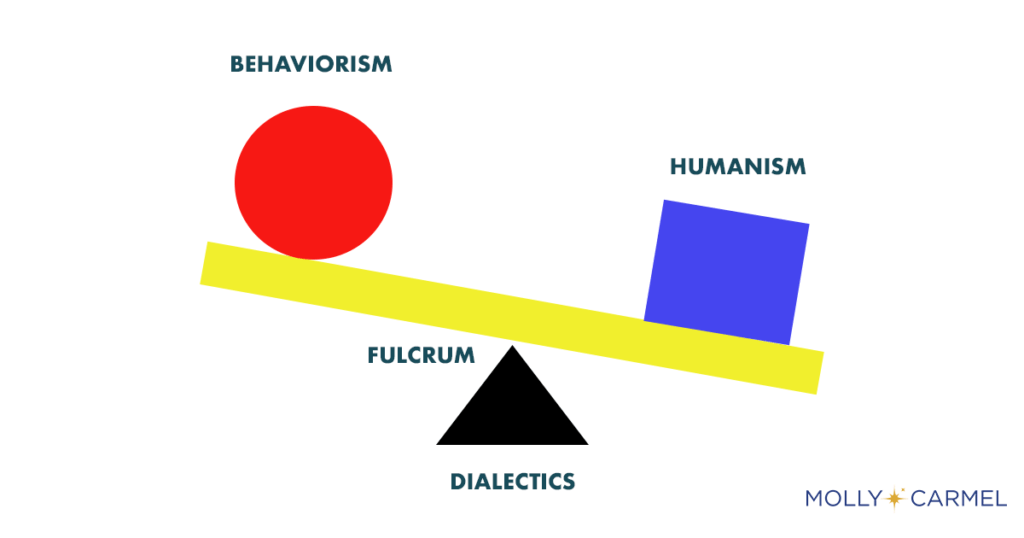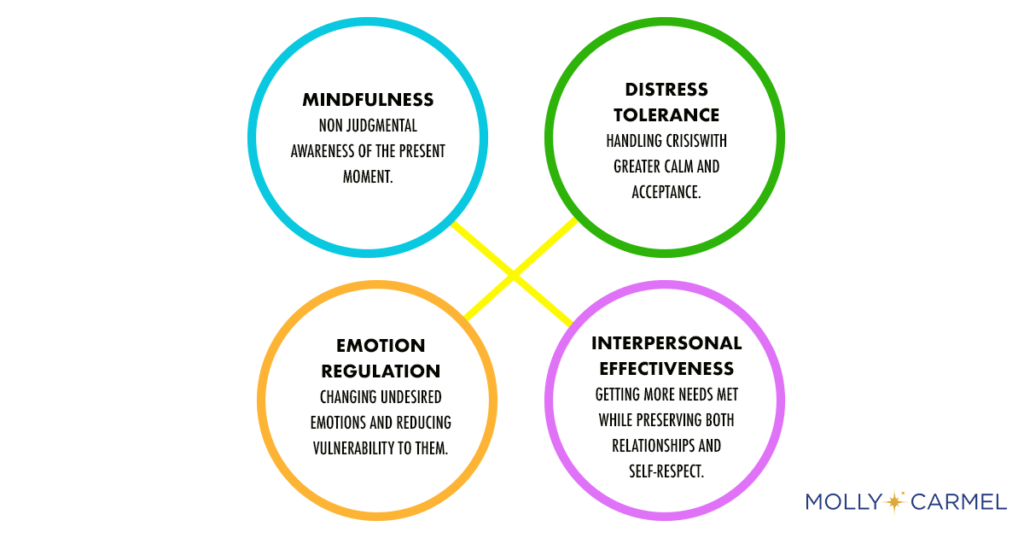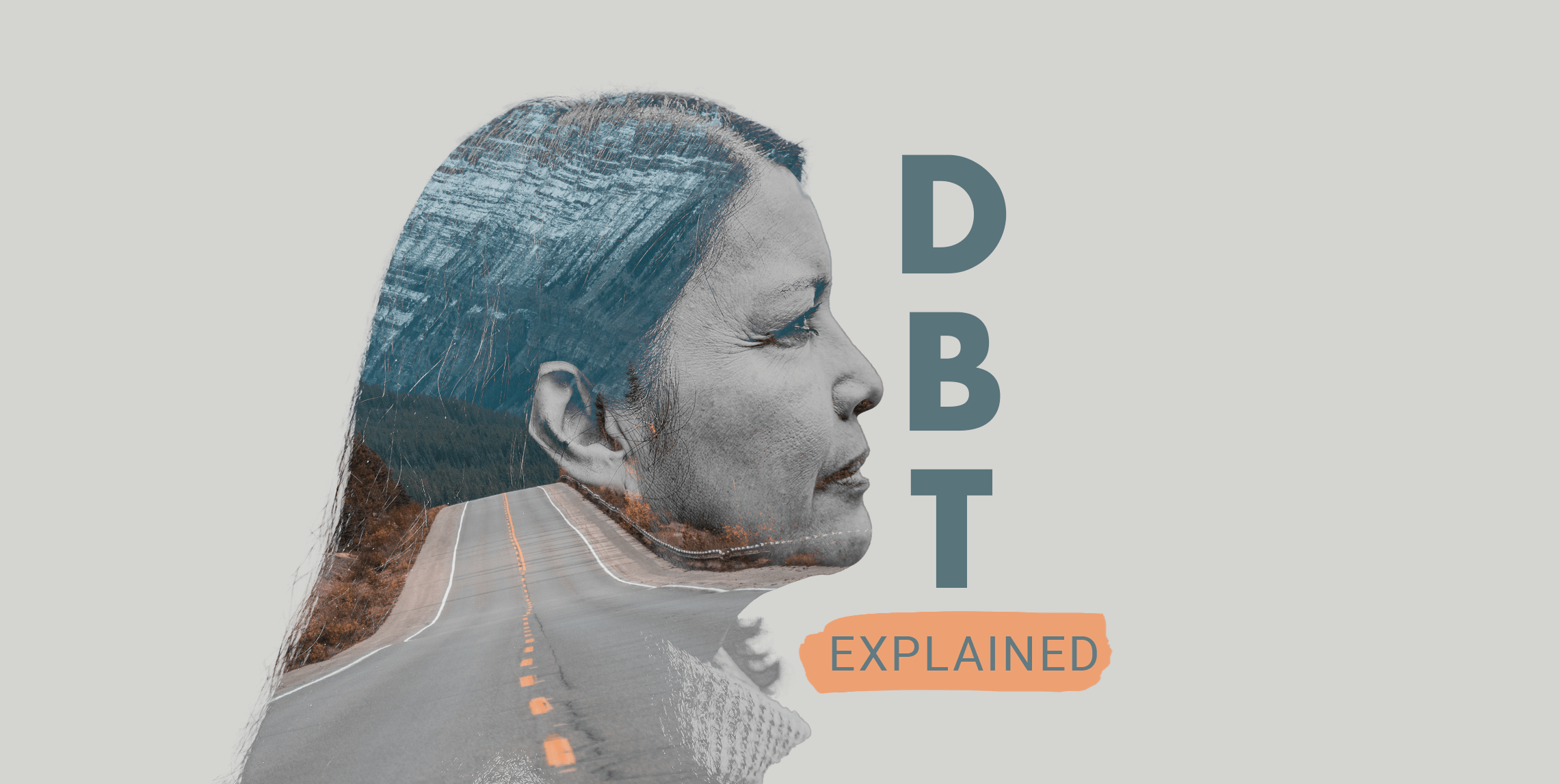The Holy Grail of Change
“A little less conversation, a little more action, please” goes the famous lyric from Elvis Presley’s song of the same name. And that’s exactly what dialectical behavioral therapy (DBT) represents to me in comparison to the other types of therapies used to fight binge eating and other eating disorders. Don’t let the clinical sounding name scare you off; dialectical behavioral therapy is about accepting, in the spiritual here and now, the root causes of your binge-eating, and then finding very practical ways to cope. If you want a pathway to real change and healing, then dialectical behavioral therapy is the holy grail of therapies. I know this, not just from my credentials and education, but from years of trying everything under the sun before ultimately conquering my own binge-eating disorder using dialectical behavioral therapy techniques..
What is Dialectical Behavioral Therapy?
So, what exactly is dialectical behavior therapy? Well, technically speaking, dialectical behavior therapy is a type of evidence-based psychotherapy. “Evidence based” is clinician jargon meaning there is solid scientific proof that it works. Considered a third wave behavioral therapy, dialectical behavior therapy has roots in cognitive behavioral therapy. Cognitive behavioral therapy, however, puts heavy focus on changing one’s thoughts, whereas dialectical behavior therapy places emphasis on accepting and changing one’s behaviors. Identifying who you are, accepting that your experiences are real, and then learning to cope with those experiences are the cornerstones to the therapy’s approach. With dialectical therapy you get the best bits of cognitive behavioral therapy, plus skills to manage your emotions, cope with problems and stress, mindfulness and acceptance.

A Beautiful Practice
But technical terms mask the true underlying beauty of a practice that is a balance between traditional logic of cognitive therapy and a humanistic approach of self reflection, validation and support. Hence the word ‘dialectical’ in its title: two seemingly opposing thought processes that can both be true at the same time. Imagine the deductive logic of Western Civilization meets the spiritual healing of the East. The end result is a refreshing approach to therapy that is not about chatisation, but knowledge and realization. For me, and the countless others helped by dialectical behavioral therapy, healing comes commensurate with a path of self-discovery and self-identification that completely revolutionizes your relationship with yourself and the world around you.
Clinically Proven
All this makes dialectical behavior therapy the ideal choice to cope with extreme or unstable emotional and harmful behaviors such as binge-eating disorder. In a 2001 study, 89% of women who received dialectical behavioral therapy stopped binge eating by the end of the treatment. Another 2020 study looked at the effectiveness of dialectical behavior therapy versus cognitive behavioral therapy. It revealed that less intensive dialectical behavior yielded comparable results to more intensive cognitive behavioral therapy. After helping countless people heal themselves from binge eating and other food related disorders by applying dialectical behavior methods, I can also attest that it works.
Broad Applications
Dialectical behavior therapy has proven effective in treating much more than just eating disorders. This lends further credence to its efficacy and elevated position amongst the psychotherapist community. Some of the other main applications of dialectical behavior therapy include:
- Attention deficit/hyperactivity disorder (ADHD)
- Bipolar disorder
- Borderline Personality Disorder
- Generalized anxiety disorder
- Major depressive disorder
- Non-suicidal self-injury
- Obsessive compulsive disorder (OCD)
- Post-traumatic stress disorder (PTSD)
- Substance use disorder
- Suicidal behaviour disorder
Dialectical Behavior Therapy Skills
Were I forced to choose an aspect of dialectical behavior therapy I appreciate the most, I would say it would be its skills based underpinnings. I’ve experienced first hand how the four major skills categories can work together to heal one’s relationship with food. The four major skill sets are:

- Mindfulness: Helping those with food related disorders focus on the present moment. It boots present awareness and reduces the emotional stress that comes with constantly worrying about the past or future.
- Distress Tolerance: Distress tolerance trains individuals how to deal with stressful situations in a more manageable manner.
- Emotional Regulation: The aim is to practice how to deal with powerful and potentially unpleasant emotions, and reduce emotional suffering and vulnerability.
- Interpersonal Effectiveness: Refers to communication with people to maintain relationships, balance priorities and build self-respect.
A Relatable Goddess
Dialectical behavioral therapy is so profoundly effective because it was created by someone who also had to overcome their own personal struggles. Dr. Marasha M. Linehan founded dialectic behavioral therapy in the 1970s in response to the shortcomings that cognitive behavior therapy showed in terms of treating suicidal borderline personality disorder sufferers. It would not be until June 2011 that she would openly admit to having her own mental health struggles.

